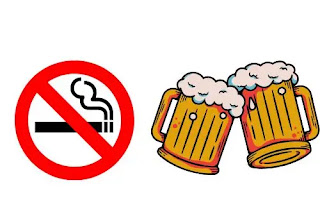I once had to step in for a colleague at a clinic on short notice. Since the arrangement was impromptu, I ended up arriving late. To make matters worse, the perpetual shortage of consulting rooms meant I had to go from room to room, searching for an empty space to hold the clinic.
Realizing how inefficient this would be, I persuaded a staff member at the outpatient department to handle the task for me. After some convincing—pointing out that it was, in fact, part of his job—he reluctantly agreed.
I followed him as he moved from one consulting room to another, patiently waiting while he opened each door. Every time, he would glance inside, murmur a quick apology to the doctor using the space, and close the door again.
This pattern repeated until he peered into one room and, instead of apologizing, chuckled and asked the person inside, "Are you free, Doc?"
I couldn’t hear the response.
"Okay," the staff member said as he shut the door and turned to me. "He’ll be leaving soon," he added.
"How soon?" I asked, curious.
The staff member chuckled again. "Very soon. Honestly, I’m surprised he’s still here. By now, he’s usually in town." He winked at me and mimed drinking alcohol.
'Oh,' I thought, stunned. 'Oh my.'
Noticing my reaction, he nodded knowingly. "Every day," he said. "Same spot."
Doctors are notorious for not taking their own advice. Logically, we should be among the healthiest people on the planet—we have all the knowledge at our fingertips. Yet, more often than not, this simply isn’t the case.
The average doctor eats poorly, hasn’t exercised in ages, and is no stranger to a vice or two.
I’m no exception.
I can spend an entire consultation advising a patient on the dangers of high glycemic index foods, only to find myself an hour later at the local bakery, indulging in a decadent slice of cake. “It’s just a treat,” I tell myself. But what kind of treat is it if it happens every other day?
I’ve heard countless stories: doctors who smoke, doctors who drink excessively, and so on. Of course, I’m not saying all doctors fall into these habits—far from it. But the apparent high prevalence of such behaviors is undeniably concerning.
It begs the question: why don’t doctors take their own advice? After some thought, I’ve come up with a few possible reasons.
1. Stress
This is the most common reason you’ll hear from doctors, and while I agree it’s a contributing factor, I don’t think it’s the primary one. Still, it’s worth exploring.
During one of the most challenging periods of my life, my daily routine looked like this:
Wake up. Get ready for work. Go to work. Work. Go home. Collapse on the couch. Watch something on a screen. Sleep. Repeat.
Day after day, I operated on autopilot. I had a bed, but for almost a month, I slept on the couch.
Why?
I was exhausted—physically and mentally. My brain functioned well enough to care for patients, but I wasn’t truly present. I was merely existing.
When I got home, all I wanted was to eat and watch something to get that little dopamine hit. Afterward, all I could do was sleep.
During that time, I gained a significant amount of weight, and the truth is, I didn’t care.
I suspect many doctors and healthcare workers experience this autopilot mode at some point. You’re so stressed and drained that before you know it, your health has declined, and you’re too overwhelmed to address it.
So, how do you prevent this? The same way you would manage stress in general—find healthy outlets. Join outdoor activities, play sports, spend time with friends, and, most importantly, be intentional about making these changes.
2. Doctors don't have doctors (not really)
I’ve lost count of how many colleagues have approached me to “sort out” a medical issue. When I try to perform a thorough evaluation, I often get resistance.
“Oh, I’m fine, I’m fine. I just need this or that medication.”
Doctors frequently self-medicate because we assume we know enough to handle our own health. What we fail to account for are our blind spots. We’re experts at minimizing our symptoms, which means we often miss the diagnosis.
And when we do recognize the signs, we rationalize them away.
“It can’t be that. It can’t happen to me…”
Yes, it can.
See a doctor. Be a good patient. And most importantly, follow your doctor's advice.
3. We are all human
I believe this is the heart of the issue. In a way, it ties together everything I’ve mentioned so far.
At the end of the day, we’re human—flawed, fallible, and vulnerable. We have weaknesses. We avoid the hard things and often choose the path of least resistance.
We develop habits, some good and others destructive, and we struggle to break the bad ones. We lie to ourselves. We make mistakes.
But being human also means we can show ourselves compassion. Be kind to yourself. Like dealing with a wayward friend or family member, though, kindness sometimes needs to be firm.
Sometimes, you need to face yourself in the mirror and take your own advice.


0 Comments